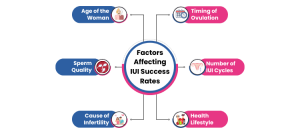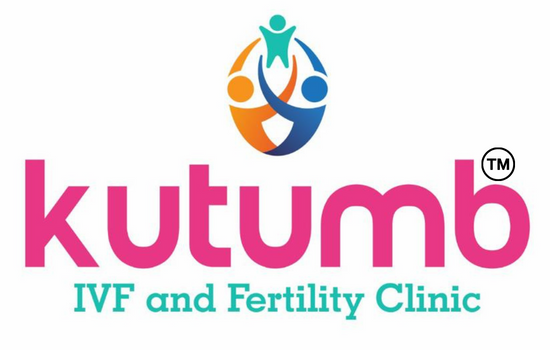What is Intrauterine Insemination (IUI)?
Intrauterine Insemination (IUI) is a type of fertility treatment designed to enhance the chances of pregnancy for individuals or couples facing challenges in conceiving naturally. The procedure involves placing sperm directly into a woman’s uterus during her ovulation period, aiming to facilitate fertilization by reducing the distance sperm has to travel to reach the egg.
IUI is often recommended for couples with unexplained infertility, mild male factor infertility (such as low sperm count or motility), cervical issues, or women with ovulation irregularities. It is also commonly used for individuals using donor sperm, such as in cases of same-sex couples or single women who wish to conceive. Unlike more advanced procedures like in vitro fertilization (IVF), IUI is less invasive and generally a first-line treatment before exploring more complex options.
When considering IUI, it’s important to also be aware of the cost of IUI in Vizag. The expenses associated with this procedure can vary based on the clinic, the expertise of the medical team, and any additional treatments or medications needed. Consulting with a fertility specialist will provide insights into the specific costs involved in your treatment plan.
Understanding the IUI Procedure
The IUI procedure is relatively simple and minimally invasive, making it a popular choice for female infertility treatment in Vizag. It begins with monitoring the woman’s ovulation cycle to determine the optimal time for insemination. Once ovulation is confirmed, a concentrated sample of sperm, either from a partner or donor, is washed and prepared in a lab to improve its quality.
During the procedure, the sperm is inserted directly into the uterus using a thin, flexible catheter. This bypasses the cervix and places the sperm closer to the egg, increasing the chances of fertilization. The process typically takes just a few minutes and is generally painless, allowing the patient to resume normal activities shortly after.

Factors Affecting IUI Success Rates
• Age of the Woman: Success rates are higher for women under 35 due to better egg quality and ovarian reserve.
• Sperm Quality: Higher sperm count, motility, and morphology improve chances of success.
• Cause of Infertility: Mild fertility issues, such as unexplained infertility or minor male factor infertility, have higher success rates with IUI.
• Timing of Ovulation: Accurate timing of insemination in relation to ovulation significantly impacts outcomes.
• Number of IUI Cycles: Multiple IUI attempts may increase chances of success over time.
• Health and Lifestyle Factors: Healthy body weight, balanced diet, and avoiding smoking and alcohol can enhance success rates.
You may also like: Male Factor Infertility and IVF
Preparing for an IUI Cycle
Preparing for an IUI cycle involves several steps to ensure optimal conditions for conception. Here’s a brief guide:
• Fertility Evaluation:
◦ Blood Tests: Hormonal levels are checked to assess ovarian function.
◦ Ultrasound: To monitor follicle development and ensure the uterus is healthy.
◦ Semen Analysis: Evaluates sperm count, motility, and morphology.
• Ovulation Tracking:
◦ Natural Cycle: Monitoring your ovulation through kits or ultrasounds to time the insemination.
◦ Medicated Cycle: Fertility drugs may be used to stimulate egg production and enhance ovulation.
• Healthy Lifestyle Changes:
◦ Diet: Focus on a balanced, nutritious diet rich in vitamins and minerals.
◦ Exercise: Engage in moderate physical activity to maintain a healthy weight.
◦ Stress Management: Reducing stress through yoga or meditation can support fertility.
• Medications: Depending on the doctor’s assessment, medications like Clomiphene or Gonadotropins may be prescribed to induce ovulation.
• Timely Insemination:
◦ Follow the doctor’s schedule for the IUI procedure, which will usually be timed based on ovulation triggers to maximize the chances of success.
Potential Risks and Side Effects of IUI
While intrauterine insemination (IUI) is generally considered a safe and minimally invasive procedure, it’s important to be aware of some potential risks and side effects. These include:
• Mild Discomfort or Cramping: Some women may experience mild cramping during or after the procedure as the catheter is inserted through the cervix into the uterus. This discomfort is usually temporary and resolves within a few hours.
• Spotting or Light Bleeding: Due to the insertion of the catheter, there might be slight irritation to the cervix, leading to minimal spotting. This is normal and should not be a cause for concern unless the bleeding becomes heavy.
• Multiple Pregnancies: One of the most common risks associated with IUI, especially when combined with fertility medications that stimulate ovulation, is the increased likelihood of multiple pregnancies (twins or more). While this can be an exciting prospect for some, multiple pregnancies carry higher risks for both the mother and the babies, including premature birth, low birth weight, and increased strain on maternal health.
• Infection: There is a very low risk of developing an infection after an IUI procedure. Proper sterilization of the equipment and using medically safe techniques significantly reduces this risk, but it’s still something to consider.
• Ovarian Hyperstimulation Syndrome (OHSS): In cases where fertility drugs are used to stimulate the ovaries, there’s a risk of developing OHSS, a condition where the ovaries become swollen and painful. Symptoms may include bloating, nausea, and abdominal discomfort. Severe cases of OHSS can lead to more serious complications, but this is relatively rare.
• Emotional Stress: While not a direct physical side effect, the emotional toll of fertility treatments, including IUI, can be significant. The waiting period between the procedure and knowing whether it was successful can cause anxiety and stress, and repeated unsuccessful cycles may lead to emotional strain.
Understanding these risks is crucial, and patients should discuss any concerns with their fertility specialist to ensure a well-informed and safe IUI experience.
Conclusion
Intrauterine insemination (IUI) can be a valuable option for couples or individuals facing fertility challenges. As a less invasive and more affordable fertility treatment compared to IVF, it provides hope for many. However, like any medical procedure, it is essential to understand the potential risks and side effects.
By working closely with a fertility specialist at the Best IVF Center in Visakhapatnam, patients can stay informed about the IUI process and make empowered decisions regarding their fertility journey. IUI may not be the right solution for everyone, but for many, it offers a viable path toward achieving pregnancy and fulfilling their dream of parenthood.
